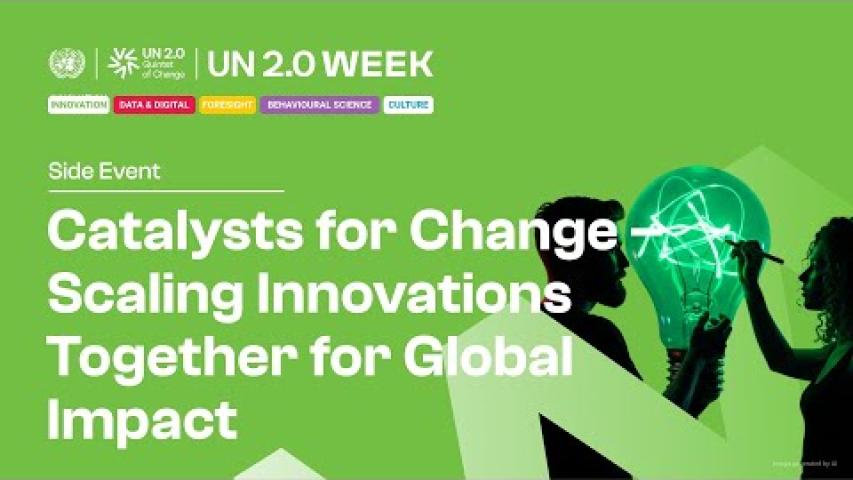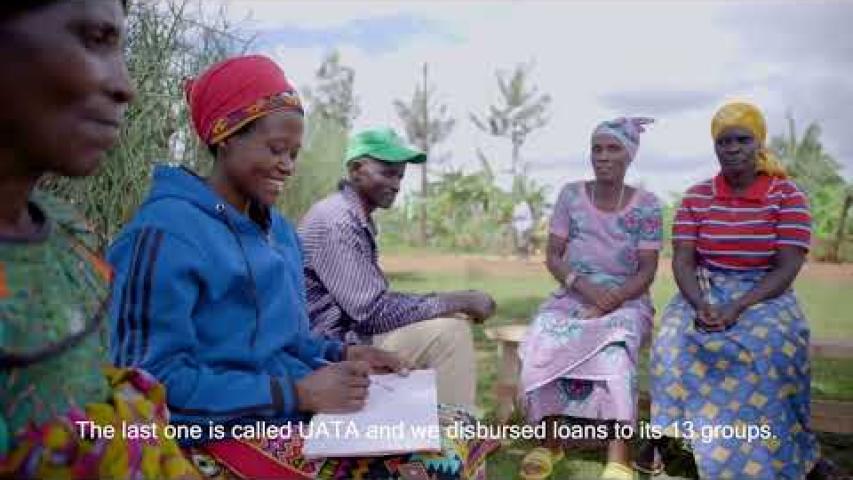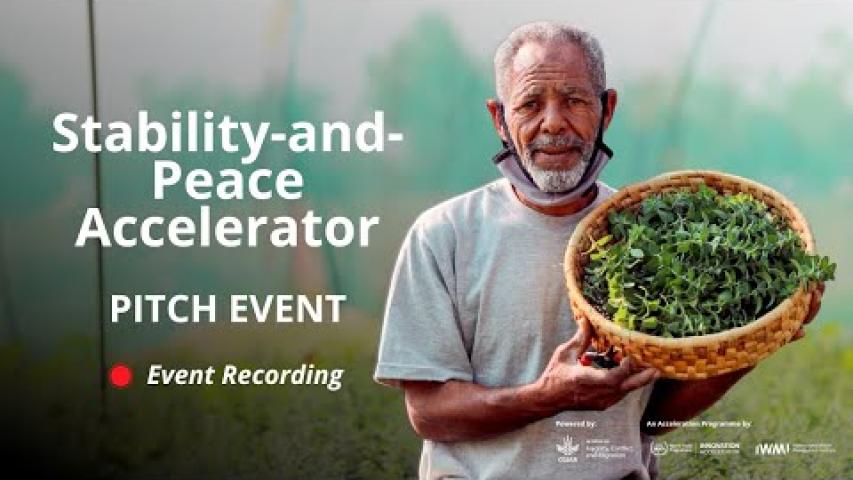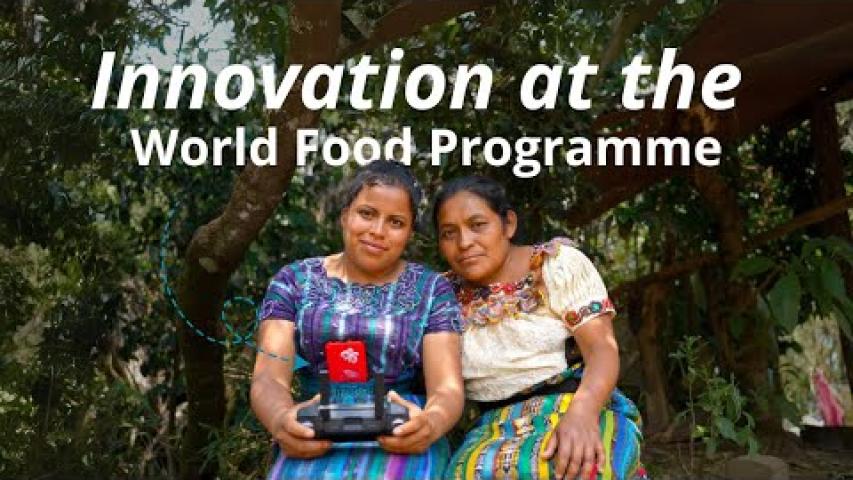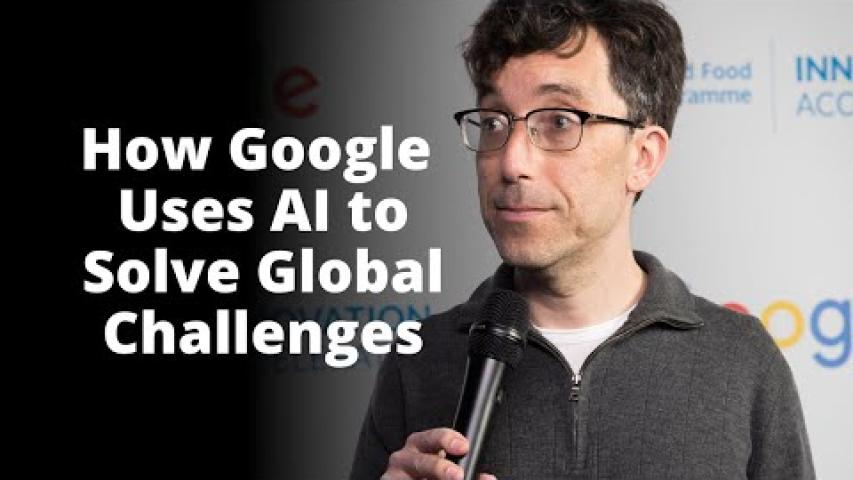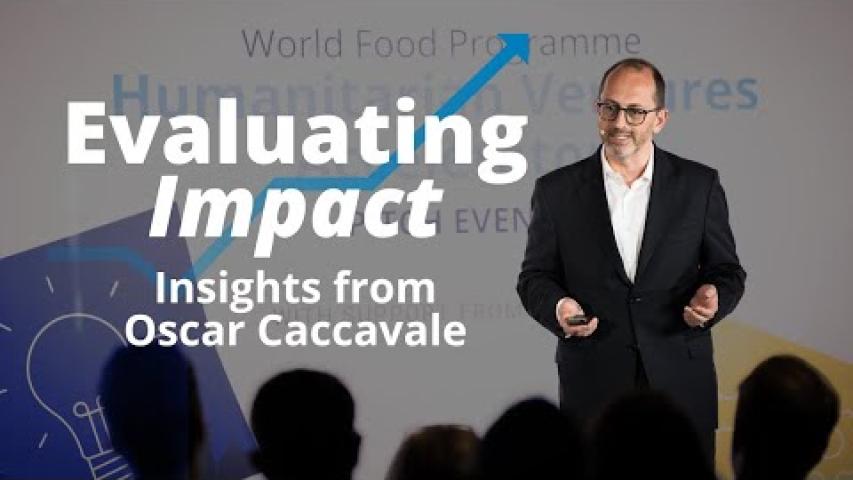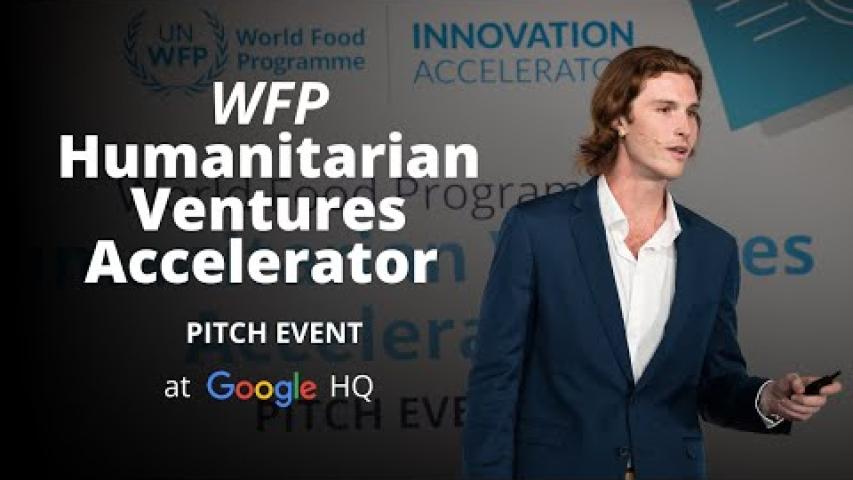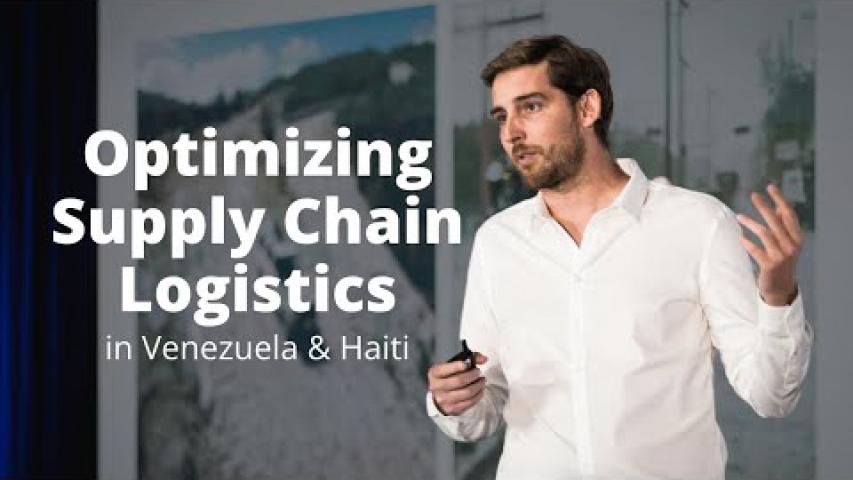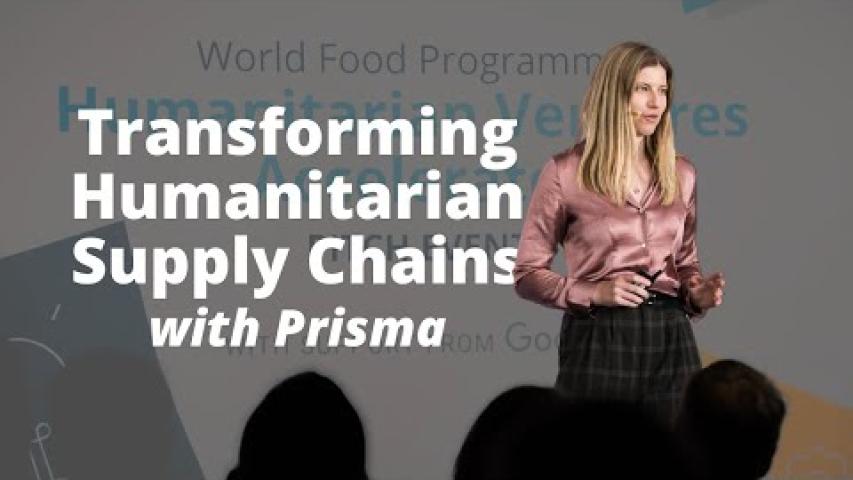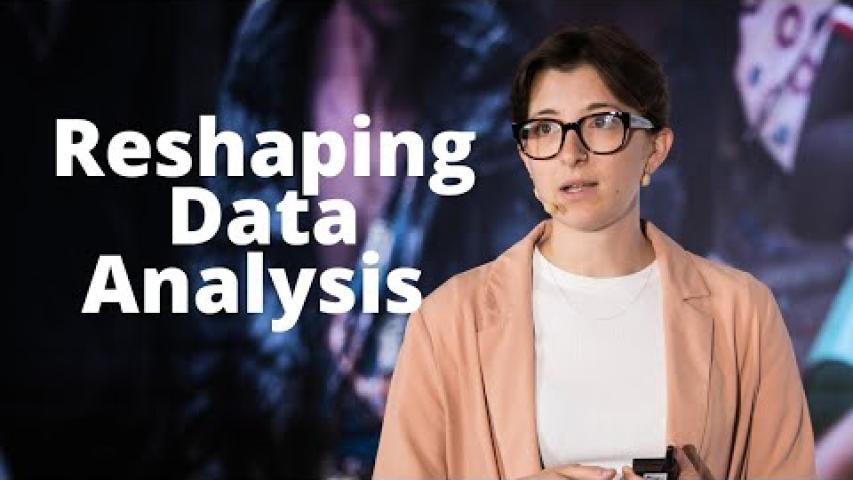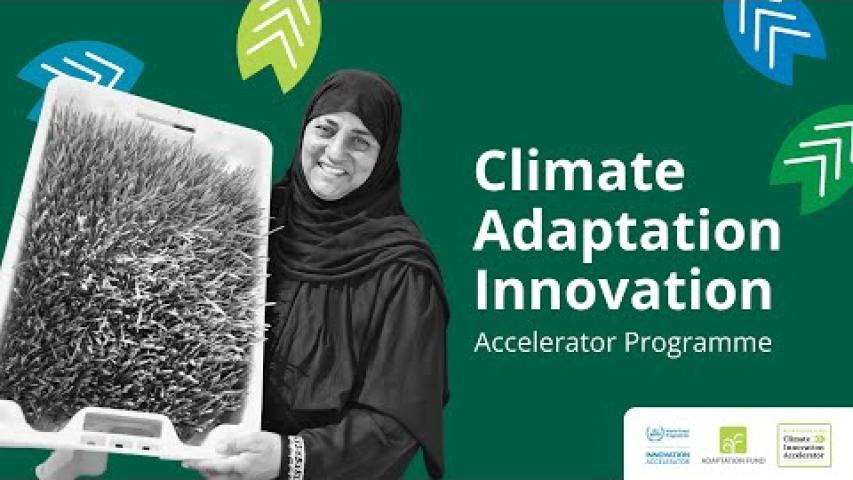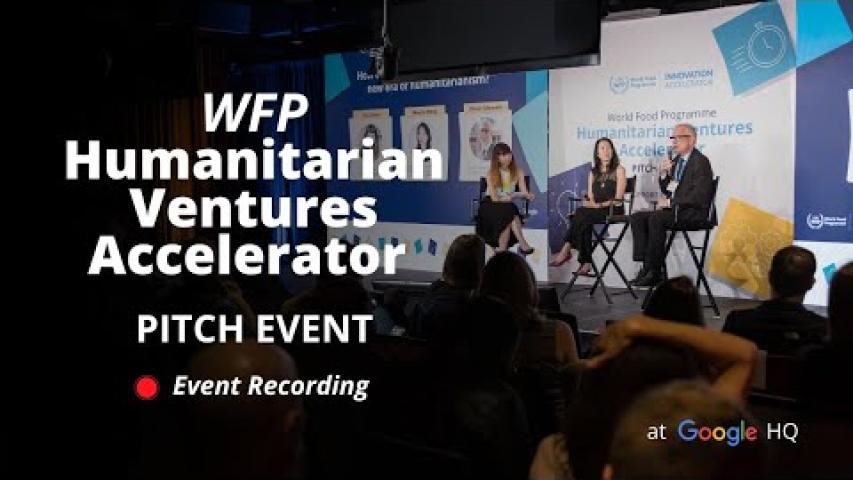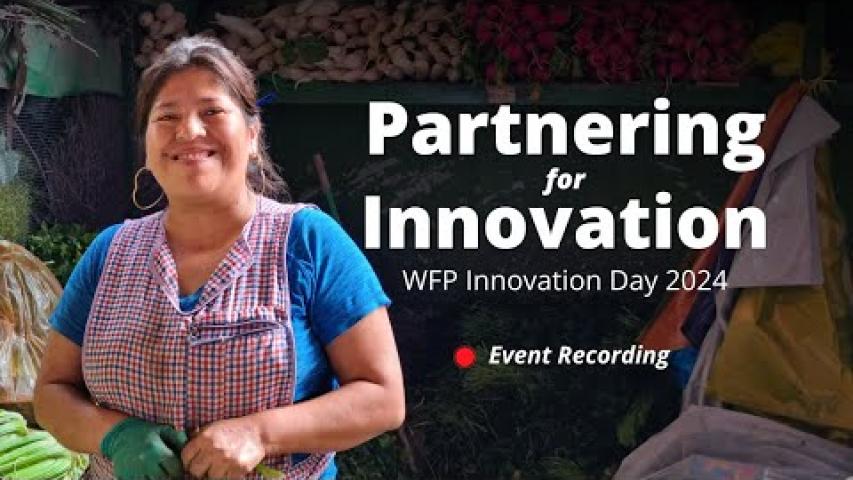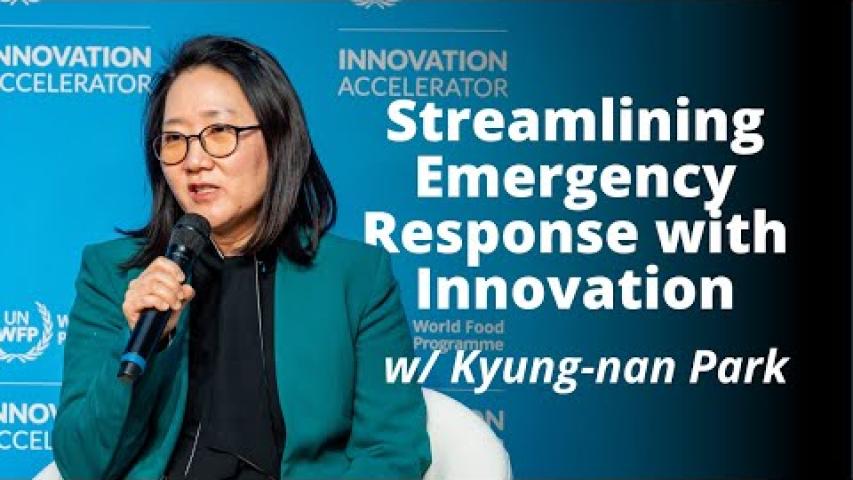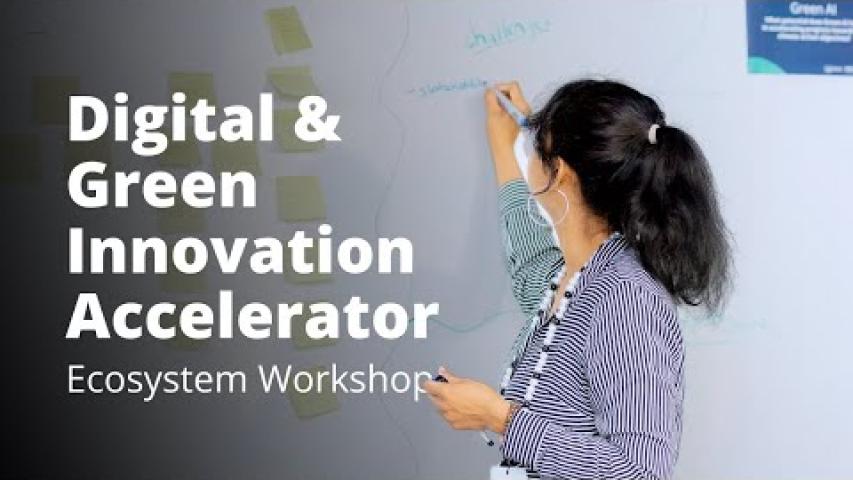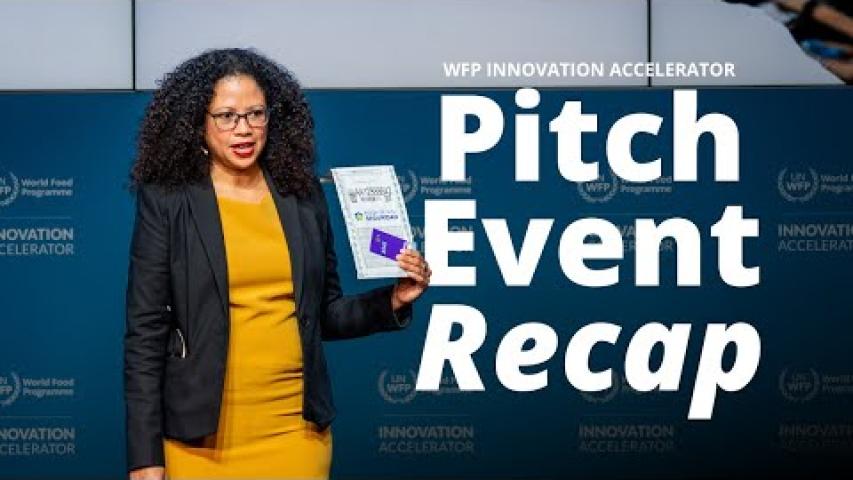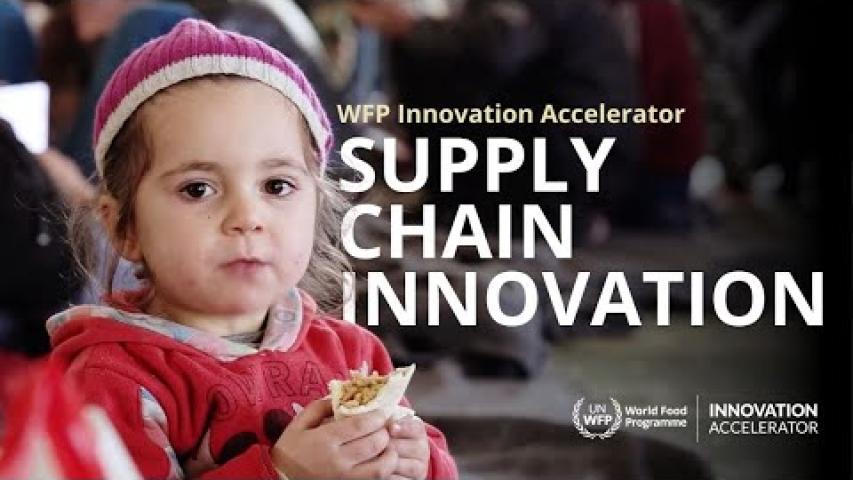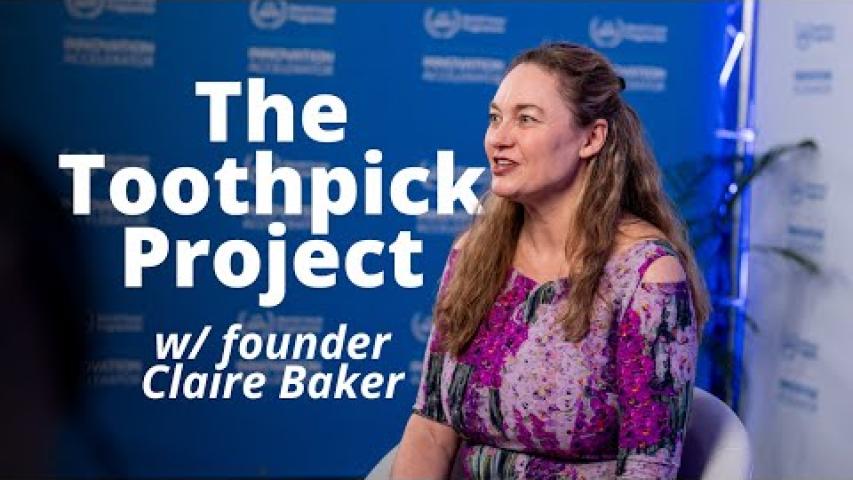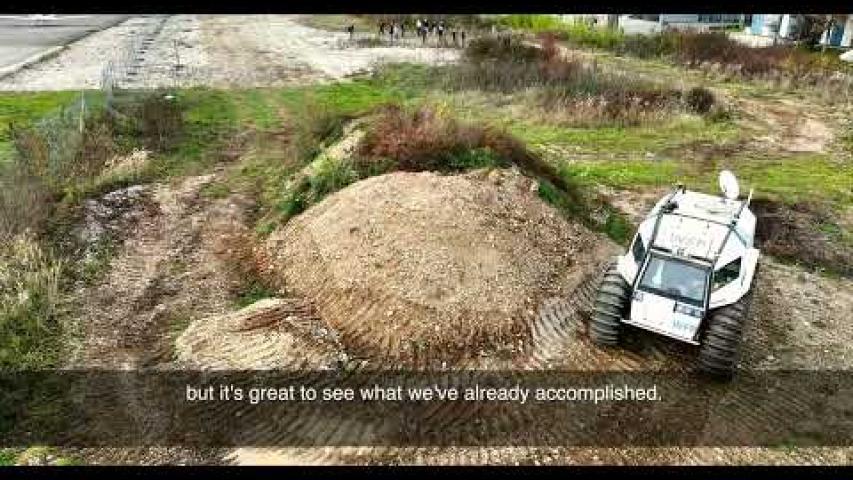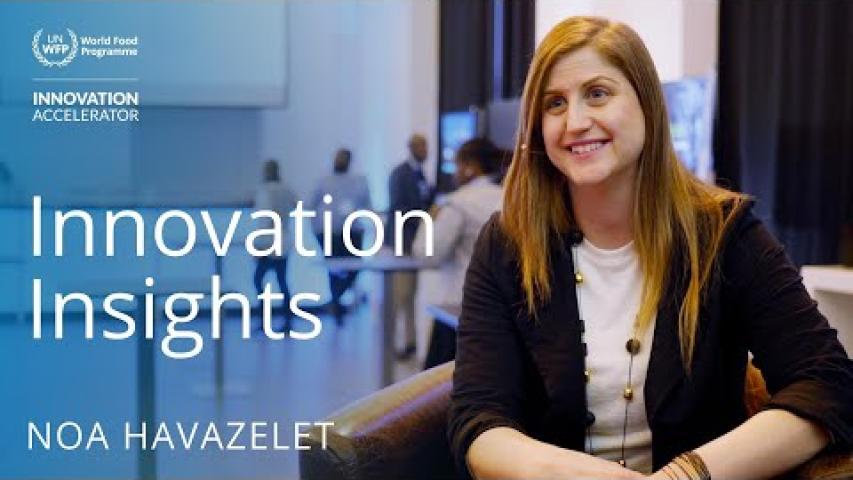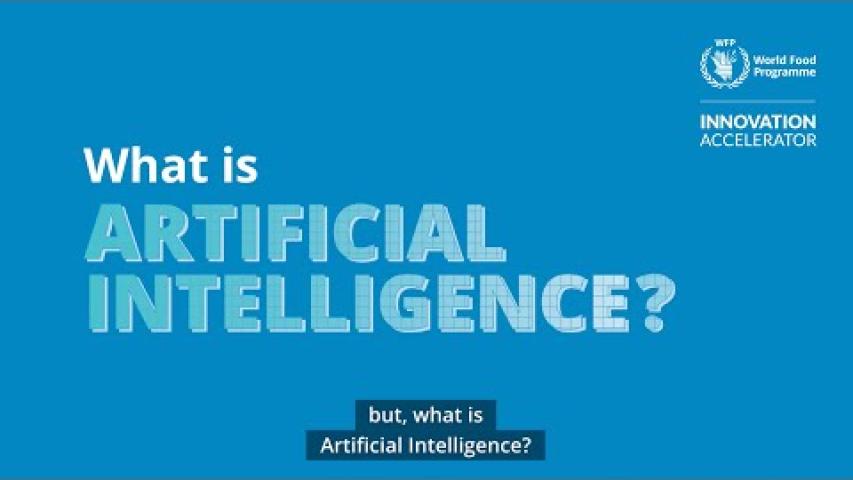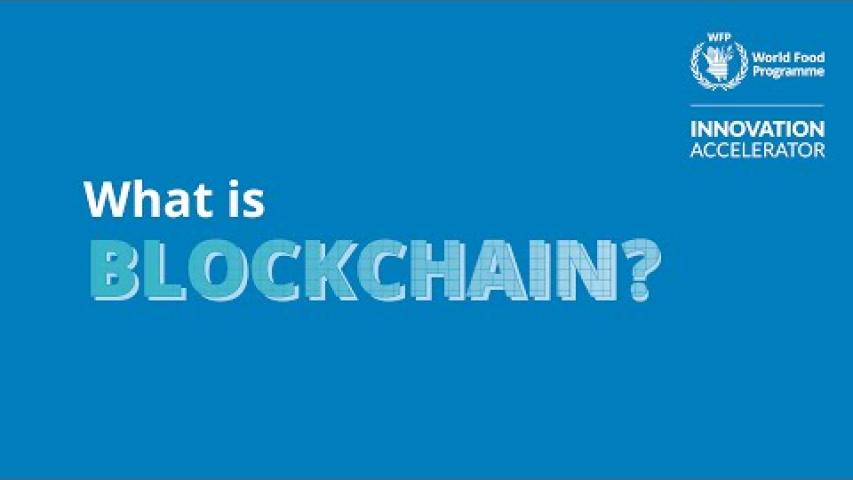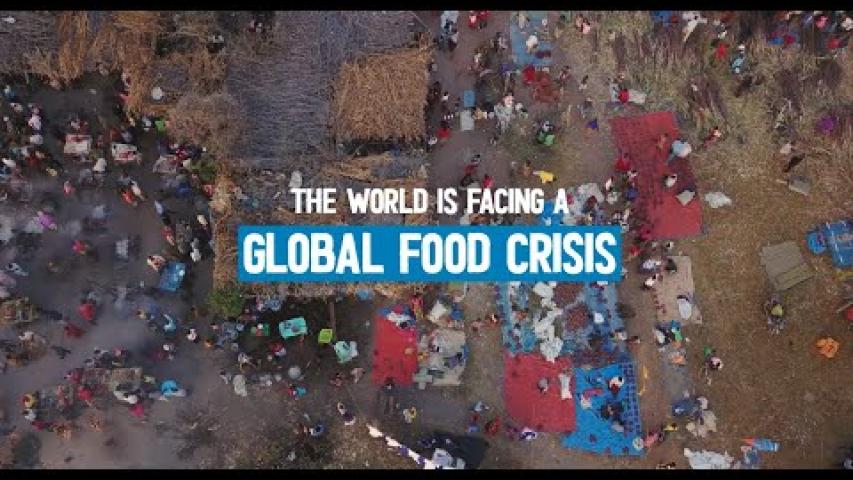Explore knowledge resources from the WFP Innovation Accelerator, including reports, case studies, insights, and videos to support innovation teams and organizations working towards social impact.
Reports
Discover the WFP Innovation Accelerator's most recent Year in Review reports to get an overview of our work and innovation projects that have positively impacted the lives of millions of people worldwide
REPORT
Year in Review 2024
With colleagues, partners and supporters, the WFP Innovation Accelerator achieved significant results in 2024 in deploying innovative solutions worldwide.
REPORT
Year in Review 2023
In 2023, the World Food Programme (WFP) prioritized innovation and technology to combat global hunger amid challenges in donor resources and humanitarian crises. With support from partners, the WFP Innovation Accelerator focused on deploying innovative solutions globally and enhancing its technology-driven humanitarian efforts, reaching 60.7 million people and supporting numerous SDG initiatives.
REPORT
Year in Review 2022
We’re proud to have created a space where innovation can thrive. See how much we accomplished with your support last year, reaching 37 million people through innovation projects worldwide.
REPORT
Year in Review 2021
Despite another challenging year, 2021 was filled with impact and growth. Our portfolio of 52 projects positively impacted the lives of 9 million people in 67 countries.
Videos
Find inspiration in our video collection showcasing disruptive innovations, insightful expert talks, and highlights from WFP's innovation bootcamps and programmes
Insights
Explore innovative solutions for social impact with practical insights and how-tos from the WFP Innovation Accelerator's experience
BLOG POST
What we learned from analysing applications for the 2025 Humanitarian Innovation Accelerator
We received 578 applications for 2025’s Humanitarian Innovation Accelerator, all aiming to tackle urgent emergency and humanitarian challenges. If you’re planning to run a similar programme, here are a few key insights that might help guide your approach.
LESSONS LEARNED
5 lessons learned from our network of innovators
2024 was another impactful year for innovation. By implementing forward-thinking innovations, country office teams drew many lessons that enabled them to learn from successful projects and from those that offered unique challenges, to avoid reinventing the wheel. This will ultimately lead to programme improvement to better serve vulnerable communities. Below are the key lessons that country office and regional office teams learned in 2024.
BLOG POST
How WFP and Netlight transform real-life data into insights on global displacement and crisis response
What happens when a humanitarian organization and a tech company unite to tackle some of today’s most pressing challenges? Since 2020, the World Food Programme (WFP) has partnered with Netlight through the WFP Innovation Accelerator, combining expertise from humanitarian fields, innovation and technology to drive impactful change. The goal: harness data and analytics to transform how humanitarian aid reaches those in need.
INSIGHTS
5 Insights WFP’s Adaptation Fund Climate Innovation Bootcamp
A look at the design, insights and reflections from an inspiring in-person bootcamp week in Munich, featuring ten climate innovation teams and WFP colleagues from the Middle East and North Africa region.
INSIGHTS
Driving Innovation from the Field: Insights from the World Food Programme (WFP) Global Innovation Workshop in Kampala
Fostering a culture of innovation throughout WFP not only paves the way for transformative solutions but also ensures that the organization can adapt to emerging challenges and maximize its operational efficiency and impact on global hunger relief.
INSIGHTS
From Ideation to Action: Six Insights from Designing a Climate Adaptation Programme
Discover how WFP Innovation Accelerator together with WFP country offices in Lebanon, Jordan and Egypt is sourcing, supporting and scaling regional climate innovations.
BLOG POST
How to scale your venture in uncertain environments
The WFP Innovation Accelerator supports innovations working in some of the most difficult contexts around the world, reaching the most vulnerable populations with innovative solutions to humanitarian and development challenges. Discover the key challenges ventures in these contexts face and the unique strategies successful ventures have used to overcome them.
BLOG POST
How we create meaningful learning bootcamps for innovators
The Kofi Annan Award for Innovation in Africa innovation bootcamp brought together nine venture teams working to improve food security in Africa for four days of developing and refining their solutions and business models. Here’s how we provided a best-in-class learning experience for them.
BLOG POST
Four steps to building an innovative organization
WFP Innovation Day welcomed innovators from around the world to celebrate WFP’s long legacy of innovation and build momentum for the future. Discover what we learned from our global colleagues and partners below.
LESSONS LEARNED
WFP Innovation Lessons Learned (2023)
The journey of innovation is marked by its trials: the pivots, the failures, and the inevitable changes that challenge our strategies and assumptions. Yet, it is precisely these experiences that lay the foundation for growth, inspire innovative thinking, and catalyse further advancements. In this Year in Review 2023, we share 24 lessons learned across our activities and innovations that can be useful for any public or private sector innovation team and humanitarian and development organizations.
LESSONS LEARNED
Changing lives through innovative finance: 7 lessons learned from WFP’s SheCan Initiative
Discover key learnings from the World Food Programme’s experience implementing SheCan, an innovative finance initiative that supports smallholder farmers and micro-entrepreneurs to promote food security and financial inclusion in emerging markets.
GUIDE
Establishing Baseline and Endline Surveys
A baseline and endline survey are important review processes for any innovation initiative. Conducting these surveys will allow you to evaluate the outcomes of your project on your target population. In this short guide, we detail how to collect, analyse and use outcome data to review your innovation progress.
MANUAL
How to bring projects to scale
This guidance manual offers unique insights and lessons learned for scaling highly impactful innovations based on our experience implementing WFP's Scale-Up Enablement Programme - one of the first within the United Nations to enable innovation scaling since its launch in 2019.
REPORT
Scaling under uncertainty
Starting a company is always a risky business. Yet, some ventures operate in environments that are particularly unpredictable. Establishing a scaling strategy or following a clear growth plan can be challenging when key external factors - political, economic, or environmental - are volatile. Moreover, contextual instability leads to a scarcity of financial and human resources, while the pressure to succeed increases. With these challenges in place, how do ventures still manage to scale under uncertainty?
BLOG POST
How to establish an organizational structure that fosters innovation
In this article, we share our top 5 tips and lessons learned on designing a corporate innovation function based on the experience of the WFP Innovation Accelerator.
LESSONS LEARNED
WFP Innovation Lessons Learned (2022)
Pivots, failures and change are an inherent part of the innovation process. Lessons learned from responding to these challenges give ground for growth and innovation. Discover our 18 lessons learned from 2022 focused on enabling factors for innovation scaling, designing data-driven programmes, exploring emerging technologies and new financing models, and more.
LESSONS LEARNED
WFP Innovation Lessons Learned (2021)
Explore our unique lessons learned from 2021 - on designing effective innovation programmes, sourcing impactful innovations from around the world, and leveraging new ways of working to enhance our operations.
LESSONS LEARNED
WFP Innovation Lessons Learned (2020)
Discover our unique lessons learned from 2020 as we adapted our programmes and operations to become a fully virtual innovation accelerator amid the pandemic.
BLOG POST
How WFP’s SDGx Acceleration unit is harnessing collaboration and innovation to achieve SDGs
Read inspiring stories of two innovative ventures that have achieved impact at scale after participating in acceleration programmes created by WFP’s SDGx Acceleration unit and the Bill and Melinda Gates Foundation.
BLOG POST
How blockchain innovation is enhancing humanitarian response
As an early adopter of blockchain in the humanitarian and development sector, WFP is exploring further opportunities to trailblaze on this front. Here’s some of our recent blockchain projects that can change the game for good.
BLOG POST
How AI can help tackle world hunger
WFP explores responsible, sustainable, and inclusive uses of AI as part of its Frontier Innovations Programme, which seeks technological innovations that can enhance humanitarian work. Learn how 5 innovations powered by artificial intelligence are adding value to our work.
BLOG POST
How WFP uses satellite imagery and machine learning in emergencies
Learn about SKAI, an AI-powered tool co-developed by WFP and Google Research that automatically analyses satellite images to assess damage from disasters.
BLOG POST
How WFP’s PRISM provides real-time impact through open-source software
Global Programme Manager of PRISM, WFP's climate monitoring system, shares insights about the project's development and why it was important to make the technology open-source.
BLOG POST
How regional innovation can transform the future of food systems
Five reasons why we believe supporting regional innovation is the way forward to building food systems that cater to everyone.
Case Studies and Toolkits
From ideation to impact, explore real-world examples of how WFP is implementing innovation projects that create social impact across various domains
TOOLKIT
WFP-X Moonshot Toolkit
WFP-X is WFP's first-ever exploration of moonshot innovation for urban food security in 2030 megacities. Discover the WFP-X Toolkit that offers a set of design-thinking inspired methods, created over a 9-month period and tested with local Tanzanian innovators, to design solutions that can change the world.
CASE STUDY
Fenik in Malawi
A brief innovation case study featuring Fenik in Malawi is an example of how refrigeration innovations can increase the availability of nutritious food.
WHITE PAPER
Leaders and Intrapreneurs: Driving Investment in Frontier Markets
A case study of the World Food Programme in the report from ODI and the Humanitarian and Resilience Investing Initiative showcases our work in innovative finance and how it facilitates investment in frontier markets.
CASE STUDY
Thrive Agric in Nigeria
Brief innovation case study featuring Thrive Agric in Nigeria, an example of how innovation can complement emergency operations in conflict-affected areas.
BLOG POST
From idea to impact: WFP CODA’s humanitarian innovation journey
This case study takes us through a 5-year innovation journey of CODA, WFP’s digital innovation that has transformed malnutrition management.
WHITE PAPER
Seed, Scale, Structure: How international organizations shape innovation
A case study of the WFP Innovation Accelerator in the report by the University of Geneva showcases our journey in establishing an organizational structure dedicated to innovation.



